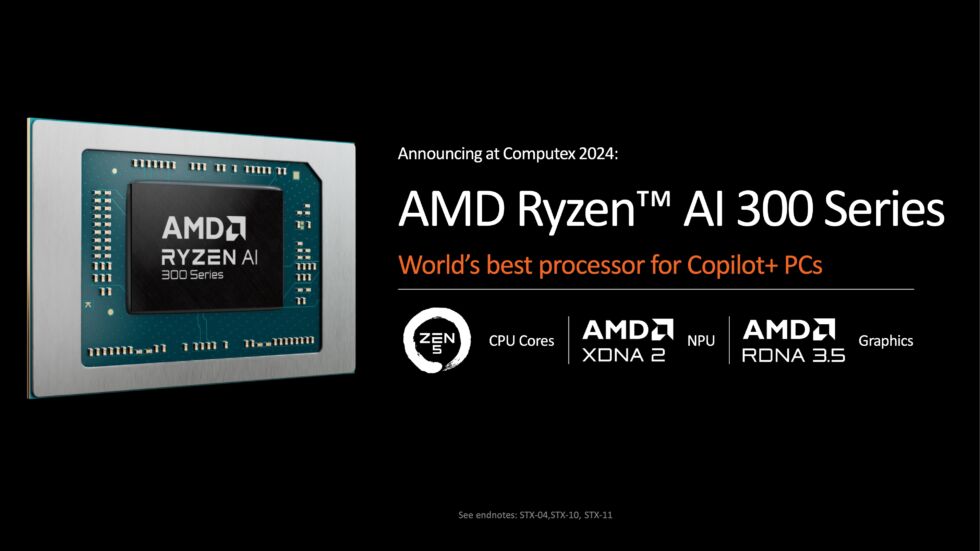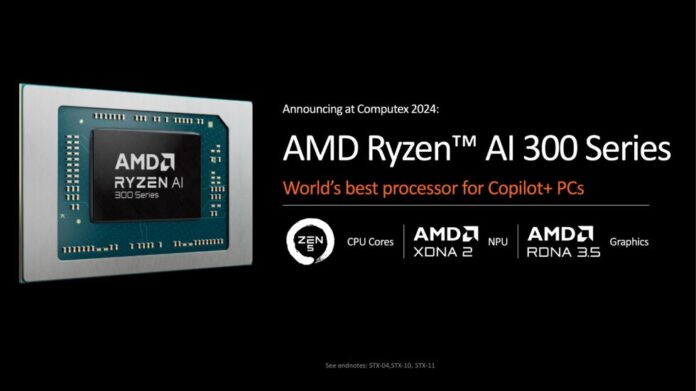-

AMD's Ryzen AI 300 series is its next-gen laptop platform, and the first to support Copilot+ PC features. [credit: AMD ]
AMD’s next-generation laptop processors are coming later this year, joining new Ryzen 9000 desktop processors and ushering in yet another revamp to the way AMD does laptop CPU model numbers.
But the big thing the company wants to push is the new chips’ performance in generative AI and machine learning workloads—it’s putting “Ryzen AI” right in the name, and emphasizing the presence of an improved neural processing unit (NPU) that meets and exceeds Microsoft’s performance requirements for Copilot+ PCs. The new Ryzen AI 300-series succeed the Ryzen 8040 chips from earlier this year, which were themselves a relatively mild refresh for the Ryzen 7040 processors less than a year before.
AMD promises performance of up to 50 trillion operations per second (TOPS) with its new third-generation NPU, a significant boost from the 10 to 16 TOPS offered by Ryzen 7000 and 8000 processors with NPUs. This would make it faster than the 45 TOPS offered by the Qualcomm Snapdragon X Elite and X Plus in the first wave of Copilot+ compatible PCs, and also Intel’s projected performance for its next-generation Core Ultra chips, codenamed Lunar Lake. All exceed Microsoft’s Copilot+ requirement of 40 TOPS, which enables some Windows 11 features that aren’t normally available on typical PCs. Copilot+ PCs can do more AI processing locally on device rather than relying on the cloud, potentially improving performance and giving users more privacy.
Read 7 remaining paragraphs | Comments
Ars Technica - All contentContinue reading/original-link]




